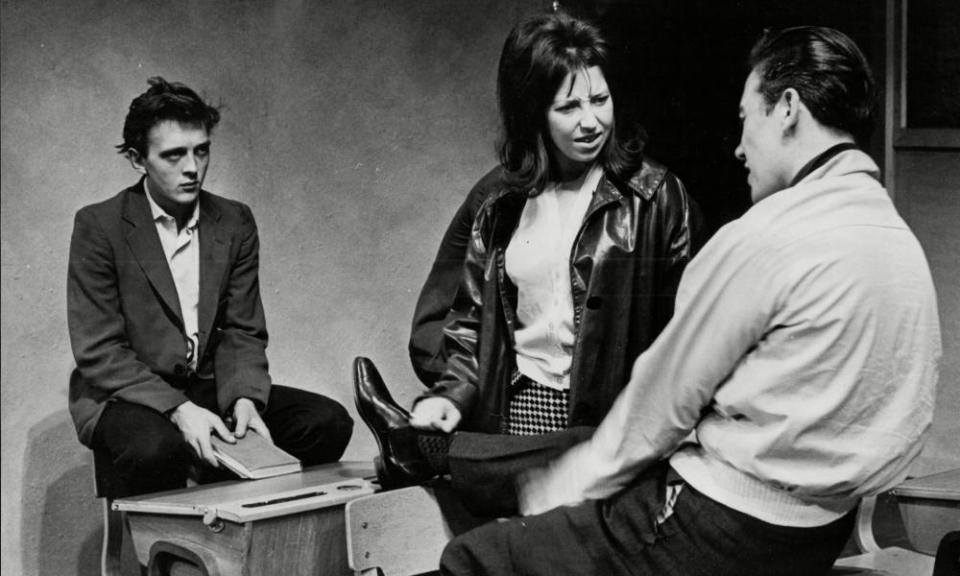Forgotten plays: No 7 – Skyvers (1963) by Barry Reckord

Why are there so few good plays about school life? A handful have achieved iconic status. Alan Bennett’s The History Boys (2004) was once voted the nation’s favourite play. Terence Rattigan’s The Browning Version (1948) is a moving study of despised teacher. Nigel Williams’s Class Enemy (1978) captures the anarchy of an inner-city school. But, good as Williams’s play is, it is more than matched by Barry Reckord’s Skyvers (1963). The piece had a fierce champion in the late Pam Brighton, who directed a superb revival in 1971, but it remains curiously little-known.
Reckord’s story is significant. Born in Jamaica, he studied at Cambridge, became a teacher and then a full-time writer who, as Yvonne Brewster has said, “laid a foundation for later emerging Caribbean playwrights such as Mustapha Matura, Michael Abbensetts and Alfred Fagon”. All found a home at the Royal Court in the 60s and 70s, but it was Reckord who paved the way.
In Skyvers, he wrote an unflinchingly honest study of life in a London secondary school where a gang of unruly 15-year-olds are on the verge of quitting without any qualifications. A couple have work lined up: one in the docks, another with a printing firm. But Brook, the school bully, seems destined for a life of petty crime and the one boy with aspirations, Cragge, has to battle against both his peers and a punitive system.
The play is clearly of its time: corporal punishment is still permitted, it’s a single-sex school and the cultural idols of the day are Cliff Richard, Johnny Haynes and Helen Shapiro. But what Reckord pins down brilliantly is the two-tier system that operates in state schools and the creation of an underclass consigned to dead-end jobs. The mutual contempt between many of the teachers and the taught is still shocking. “Cockney patter, no depth to it,” says one master of Cragge’s gift for words. And when a supply teacher asks the pupils, “Don’t any of you want to be educated?” he is met with the reply: “Look at you, you’re educated and where did it get you? Teaching!”
Plays can be many things. This one is a riveting social document that pinpoints the flaws in the educational system and the wider culture. The boys themselves, with the exception of the ambitious Cragge, are casually racist and brutally sexist. But the teachers, again with a sole exception, resign themselves to the idea that the most they can offer these mutinous kids is “gym and football and free milk”. Do we live in a better world today? I’d like to think so. But I suspect that our schools are still, as Reckord vividly suggests, a major source of social division.

 Yahoo Finance
Yahoo Finance 